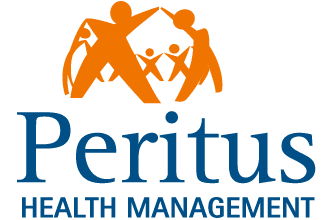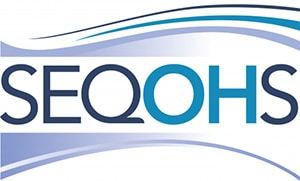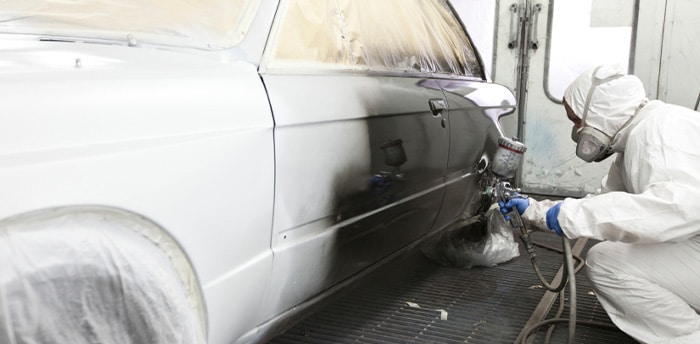Respiratory health surveillance
Breathing in certain dusts, gases, fumes, and vapours in the workplace can cause serious long-term lung diseases such as occupational asthma, chronic obstructive pulmonary disease (COPD), lung cancer amongst others.
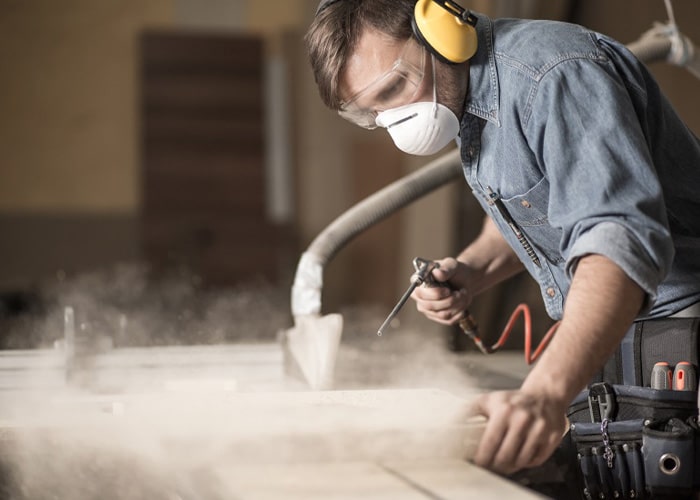
Wood and other construction dusts
Wood and other construction dusts can cause occupational asthma and other lung diseases
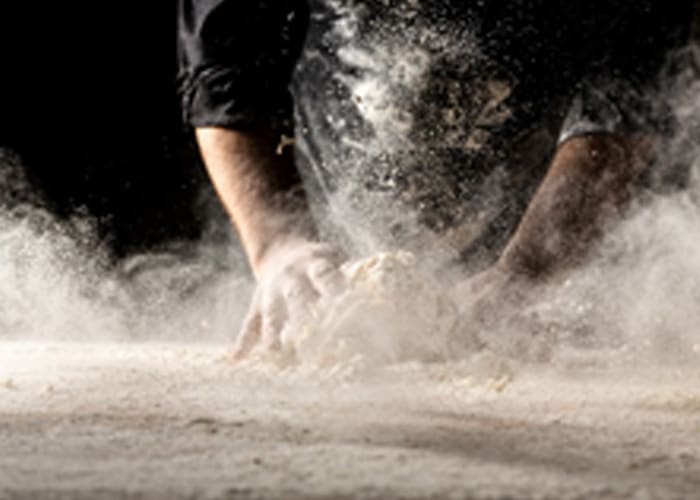
Airborne flour
Airborne flour can cause respiratory disease in food industry
Control measures should be in place to manage exposure but if there is a residual risk, respiratory health surveillance is required. If you require air monitoring to assess residual risk, our Occupational Hygienists can help.
This depends on risk:
- New-starters within 4 weeks of commencement for a baseline of lung function and previous exposure history,
- after: 6 weeks, 3 months and 6 months for high occupational asthma risks and
- then every 12 months if no problems are identified.
High-risk situations may require more frequent surveillance. These situations include:
- history of exceeding the Workplace Exposure Limits/high levels of sensitiser exposure (more than 50% of the WEL) with reliance of respiratory protective equipment.
- employees identified as vulnerable (those on immuno-suppressants; significant reductions in lung functions).
Asbestos Medicals are undertaken by an Occupational Physician with specialist training in asbestos work.
Silica Medicals may also require chests x-rays and an Occupational Physician appointment depending on exposure history and symptoms.
Normal surveillance takes 30 minutes including the questionnaire being completed with the employee.
Where respiratory problems or process barriers (e.g. communication difficulties) are identified, it may take longer.
Respiratory health surveillance is required under Regulation 11 of Control of Substances Hazardous to Health Regulations or the Management of Health and Safety at Work Regulations where:
- the work is known to damage health in some particular way,
- there are reliable ways of detecting the disease or condition,
- it is reasonably likely that damage to health may occur under the particular conditions at work and
- surveillance is likely to benefit the employee.
It should relate to the type and extent of exposure and be based on available knowledge of risks to health. Examples of where health surveillance is appropriate under the criteria of Regulation 11(2)(b) are:
- where there have been previous cases of work-related ill health in the workforce/place,
- where there is a reliance on PPE, such as respirators or gloves as an exposure control measure and
- where there is evidence of ill health in jobs within the industry e.g. breathing in oil mists from machinery.
Respiratory health surveillance is required where there is residual risk to health following the implementation of your safe system of work. Occupational hygiene (air and dust monitoring or fume sampling) measurements should indicate the level of your risk and the need for additional control measures and personal protective equipment.
A Peak flow meter is given to individuals with risks of occupational asthma for 4 weeks of 2 hourly readings with a minimum of 5 readings per day. Results of the above inputted into a specially designed computer programme and the results are reviewed and patterns are considered. This is difficult for employees to do and compliance is low. It is important to encourage participation with this as it is key in determining the difference between a work related/aggravated effect and a normal health effect. A review appointment is made 3 months to review progress and repeat spirometry if the peak flow has not been completed.
Individuals who are exposed to irritants or carcinogens will be referred to an Occupational Physician or a regional Consultant Chest Physician with Occupational Lung Disease Specialism. Chest x-rays and other tests may be indicated.
A referral to a regional Consultant Chest Physician with Occupational Lung Disease Specialism may be arranged. All COSHH assessments and Data Hazard Sheets should be forwarded to the Specialist prior to the appointment. This is an NHS referral and, whilst it doesn’t cause a charge to the employer, it can cause some frustration as it takes time to co-ordinate appointments and reach a diagnosis. At this stage, Peritus Health Management does not have any control over these appointments, investigations, treatments or flow of information. The employee is likely to have the information relating to the consultations for 4 – 6 weeks before it is provided to us and only then with the employee’s permission. It is important for the employer to continue to speak with the employee to keep abreast of the progress made.
The Consultant Specialist may undertake tests that are not available at local hospitals. These may include bronchial challenge testing where individuals are exposed so fractional amounts of the suspected substances in an exposure chamber, and their respiratory function and bloods are monitored for a response. This requires a 5-day admission to hospital and is not undertaken lightly.
If diagnosis of occupational lung disease is made, the disease should be reported to the Health and Safety Executive under the Reporting of Injuries, Diseases and Dangerous Occurrences Regulations (RIDDOR).
What does it include?
A respiratory health surveillance includes a full occupational and exposure history – this is the most important part. We strongly recommend that questionnaires are not issued for completion prior to the test but completed with the occupational health professional during the test as this increases the likelihood of getting accurate information.
It also includes:
- Past medical history.
- Spirometry – minimum of 3 fast blasts maximum of 8, ensuring that the results are within a 5% tolerance.
- Comparison of current results with previous results.
- Interpretation and explanation of the results to the individual.
- Provision of ‘take-away’ information with links to HSE employee information leaflets.
- Completion of ‘surveillance report form’ for Personnel Records.
- Chest x-rays and Occupational Physician appointments may be required for exposure to dusts and certain fibres.

